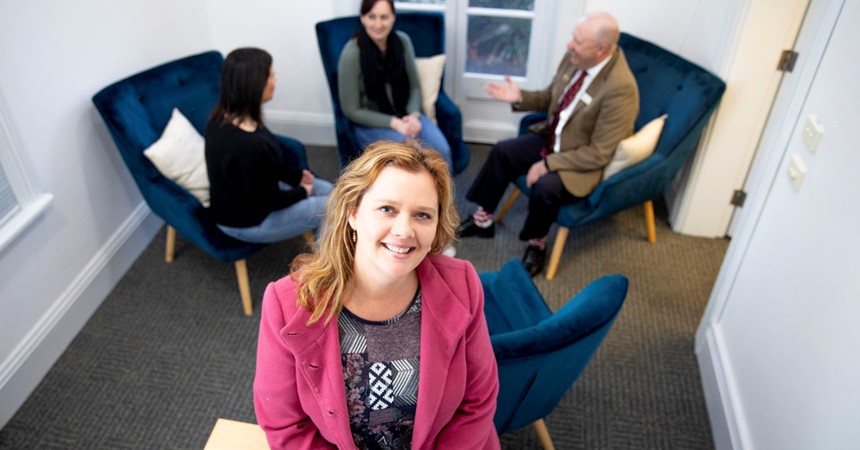Where safeguarding concerns have been raised, the service provides an opportunity for a child-focused conversation between the adults central to a child’s participation in the life of the Diocese. And, while only launched earlier this year, the service already yielding significant results.
While Ms McEntyre is new to her role an ADR facilitator, she is familiar with the OoSG having spent four years as an investigator with the agency.
“ADR focuses on relationship outcomes that are in the best interests of the child involved,” Ms McEntyre says. “It provides an opportunity for a conversation between adults, often a parent and teacher, to restore ‘goodwill’ or a sense of welcome in these relationships. This is important, as children do best when their supporters are confident in the abilities and intentions of the people around them.”
However, she does issue a word of caution for those thinking it might provide a quick fix.
“We can’t promise agreement or reconciliation in every case, in the same way a formal investigation won’t guarantee all stakeholders’ expectations will be met,” Ms McEntyre says.
She acknowledges investigations are still an important component of the work the OoSG conducts, mainly where claims have been made that are criminal in nature, relate to reportable conduct, or there is a risk of significant harm to a child or vulnerable adult.
“However, where ADR is identified as being a plausible alternative, and involved stakeholders voluntarily agree to take part, it’s the preferred option” she says.
It was during her time as an investigator Ms McEntyre initially pondered the potential for a more therapeutic approach to conflict resolution that values the human experience.
“In an investigative process I would speak with both parties individually and often hear genuine, but conflicting accounts of an event,” Ms McEntyre says. “ADR allows people to speak directly with each other, have their views heard and, hopefully, start to see the other person’s point of view.
“In ADR, each participant is directly involved in the process from the outset and is provided with an opportunity to have the other hear their experience of the concern. This perspective can make all the difference.
“After the participants have the opportunity to understand each other better, they are often better placed to identify their shared interests and work together towards outcomes they are able to commit to.”
Ms McEntyre has been involved in many matters that, before the ADR service being initiated, would have been addressed as part of an investigation.
“There is rarely a black and white, or clear cut-cut response to welfare or wellbeing concerns in the safeguarding of children,” she says.
“You can’t predict how matters would have ended up if they’d gone through an investigation process compared with ADR. However, what I can say is that through ADR I have seen numerous incidents resolved more quickly and with less impact on the children and adults involved than what tends to occur in formal investigations.
“I’m also confident that ADR has paved the way for ongoing discussions and strengthening of relationships by establishing a foundation for respectful communication informed by perspective and empathy.”






















































































